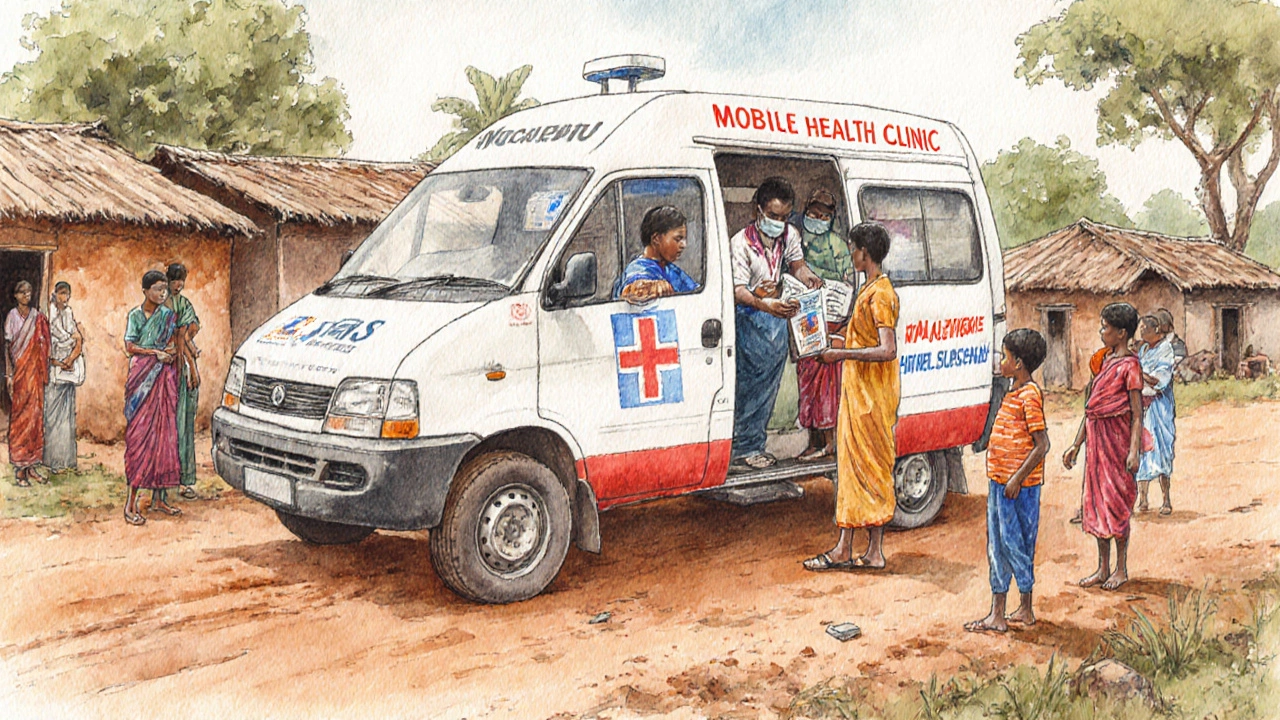Key Takeaways
- “Community outreach” can be swapped with several well‑known phrases such as public engagement or community engagement.
- Each synonym carries a subtle shade of meaning that fits different project goals.
- Choosing the right term helps you connect with donors, volunteers, and local officials more effectively.
- A quick‑reference table shows the most common alternatives and when to use them.
- Common pitfalls include using “public relations” when you really mean grassroots involvement.
When you hear people talk about Community Outreach is a strategy that organizations use to connect with local residents, share resources, and encourage participation in social programs. It often involves workshops, door‑to‑door visits, school visits, and online campaigns. The phrase is widely understood in the nonprofit sector, but many practitioners wonder if there’s a fresher or more precise term that captures the same idea.
Below you’ll find the most common alternatives, why they matter, and how to decide which one fits your next project.
Why Look for Another Term?
Language shapes perception. A term that feels modern or inclusive can attract new volunteers, grantmakers, and community partners. For example, a youth program that brands itself as a "Public Engagement" initiative may appear more civic‑oriented than a plain "outreach" effort, which sometimes sounds top‑down.
Moreover, grant applications often ask for specific jargon. Using the exact phrase the funder expects can make your proposal smoother. Finally, internal communication benefits from clear terminology: staff members know whether a campaign is a "community partnership" effort versus a simple "outreach program".
Common Synonyms and Their Nuances
| Term | Core Focus | Typical Use Cases |
|---|---|---|
| Public Engagement | Broad citizen involvement in public decision‑making | Policy consultations, town hall meetings, civic tech projects |
| Community Engagement | Two‑way interaction that builds relationships | Long‑term partnership building, co‑design workshops |
| Outreach Program | Organized series of activities targeting specific groups | Health awareness drives, school visits, mobile services |
| Social Outreach | Focus on meeting basic needs and welfare | Food banks, homelessness support, emergency relief |
| Civic Outreach | Linking residents to civic institutions and voting | Voter registration drives, civic education workshops |
| Grassroots Outreach | Bottom‑up activism driven by community members | Neighborhood clean‑ups, local advocacy campaigns |
| Stakeholder Engagement | Targeted dialogue with key interest groups | Business‑community partnerships, NGO‑government liaisons |
| Community Development | Long‑term capacity building and infrastructure | Housing projects, local economic initiatives |

Choosing the Right Phrase for Your Project
Here’s a quick decision‑tree you can run through before you finalize your language:
- Is the goal to influence public policy or government action? Public Engagement or Civic Outreach are safest bets.
- Do you need to show a two‑way, relationship‑building process? Go with Community Engagement.
- Are you delivering a series of scheduled events aimed at a specific demographic? Call it an Outreach Program.
- Is the focus on meeting immediate social needs (food, shelter, health)? Use Social Outreach.
- Is the initiative driven from within the community itself? Grassroots Outreach conveys that tone.
- Do you have a handful of powerful partners you need to keep in the loop? Stakeholder Engagement fits.
Remember, you can combine terms for extra clarity-"Community Engagement & Outreach Program" works well when you want both relationship‑building and structured activities.
Real‑World Examples
Below are three brief case studies that illustrate how different organizations swapped out "community outreach" for a more precise label.
- Case 1 - Health Clinic Mobile Van: A regional health service originally marketed the project as "community outreach". After feedback from rural residents, they rebranded it as an "Outreach Program" focusing on regular clinic dates, which increased repeat visits by 27%.
- Case 2 - Youth Climate Action: A student group used "community outreach" in grant applications and was told the term was too generic. They shifted to "Grassroots Outreach" and secured a $50,000 youth climate fund, because the funder wanted evidence of bottom‑up activism.
- Case 3 - City Planning Participation: A municipal council replaced "community outreach" with "Public Engagement" for its new zoning plan. The change signaled a two‑way dialogue, resulting in a 40% higher attendance at public workshops.

Common Pitfalls and How to Avoid Them
Even seasoned NGOs slip into wording traps. Here are the most frequent errors and quick fixes.
- Using "Public Relations" as a synonym. PR is about managing an organization’s image, not necessarily about building direct ties with residents. Swap it for "Public Engagement" when you need community input.
- Over‑generalizing with "Outreach" alone. Without a qualifier, the term can feel vague. Pair it with a descriptor-"Health Outreach" or "Education Outreach"-to signal purpose.
- Choosing a term that sounds too formal for the audience. Teens may resonate better with "Community Engagement" than "Stakeholder Engagement". Match tone to demographic.
Quick Reference Checklist
- Define your primary goal: policy influence, service delivery, relationship building, or activism.
- Match the goal to the term from the comparison table.
- Run the decision‑tree to confirm the best fit.
- Test the term with a small focus group of your target audience.
- Update all branding, grant proposals, and internal documents with the chosen phrase.
Frequently Asked Questions
Is "public engagement" the same as "community outreach"?
They overlap, but "public engagement" usually implies a broader civic context, often linked to policy or government processes, whereas "community outreach" tends to focus on service delivery and information sharing.
Can I use multiple terms together?
Absolutely. Combining terms like "Community Engagement & Outreach Program" can clarify both the relational and operational aspects of your work.
When should I avoid the word "outreach"?
If your audience feels the term is paternalistic or if you’re seeking grant funding that prefers language like "community engagement" or "public participation," it’s best to switch.
How does "stakeholder engagement" differ from "community outreach"?
Stakeholder engagement targets specific groups that have a direct interest or influence (e.g., local businesses, NGOs, government agencies). Community outreach aims at a broader public audience without necessarily focusing on influence.
Is "grassroots outreach" a buzzword?
It can sound trendy, but it accurately describes initiatives that originate from community members rather than top‑down organizations. Use it when the project truly is bottom‑up.
